Dimensions of Human Greatness
Explore the multifaceted journey of human potential, where intellect, empathy, and creativity converge to shape a brighter future.
Intellectual Mastery
Emotional Wisdom
Creative Expression
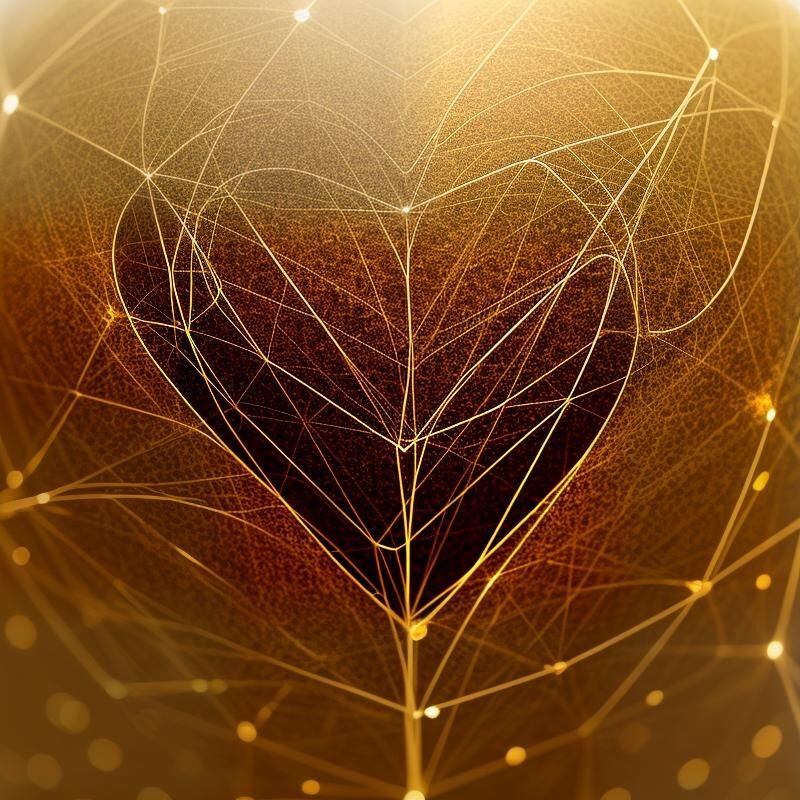
Exploring Human Greatness
Human greatness may be understood as a tapestry woven from the interdependent threads of intellect, empathy, conscience, creativity, and spirit. At Read & Riser, we seek to examine these dimensions in their fullness, recognizing that authentic greatness does not arise from the predominance of a single faculty, but from the harmonious integration of the many.
The intellect’s pursuit of knowledge, the heart’s capacity for empathy, the conscience’s moral discernment, the imagination’s creative force, and the spirit’s striving for peace collectively define the architecture of human excellence. Each element contributes a distinct mode of understanding and action, and together they compose the symphony of what it means to be truly human.
True greatness is not defined by the external markers of fame, wealth, or power. Rather, it is revealed in the depth of character, in the courage to rise after adversity, and in the grace to serve others with wisdom, humility, and compassion. It manifests in the equilibrium between thought and feeling, knowledge and virtue, strength and gentleness.
As humanity progresses through unprecedented scientific and technological advancement, it becomes increasingly evident that genuine progress depends not solely upon what we know, but upon who we are. The mind may uncover new frontiers of discovery, but only the heart can direct their moral purpose. The hands may construct, but only the spirit can inspire meaning in what is built.
This exploration of the seven dimensions of human greatness seeks to illuminate how intellect, empathy, conscience, creativity, courage, purpose, and spirit converge to express the highest potential of human life. Each dimension offers a pathway toward personal growth and collective flourishing, reminding us that the true measure of progress lies not merely in innovation, but in the elevation of character and consciousness.
The Harmony of Knowledge and Empathy
In the pursuit of greatness, knowledge stands as the foundation upon which we build our understanding of the world. It empowers humanity to question, to innovate, and to transform the environment in which we live. Knowledge fuels progress — it enables us to uncover truth, solve complex problems, and make informed decisions that shape the course of civilization. Yet intellectual greatness is not merely the accumulation of facts; it is the disciplined ability to think critically, to seek truth over comfort, and to use knowledge for the betterment of life itself.
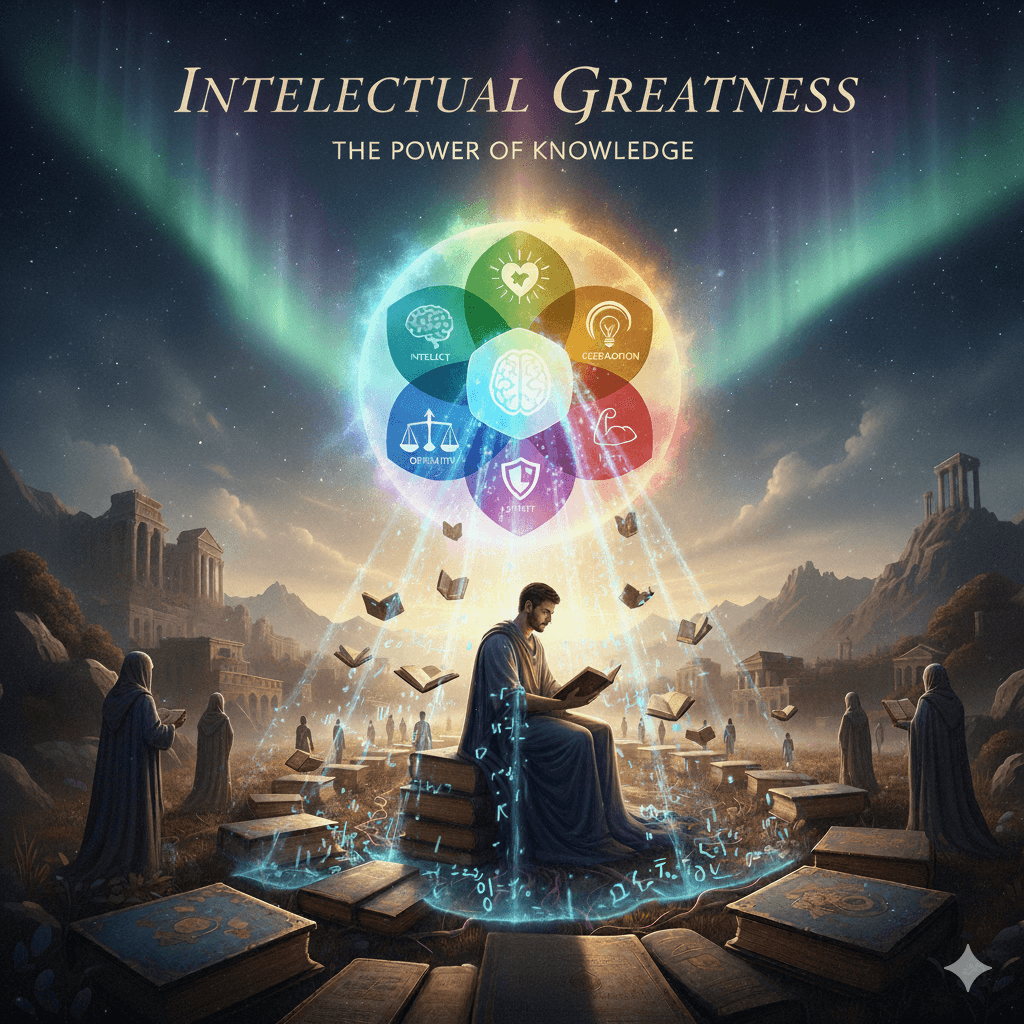
Throughout history, remarkable minds have embodied this spirit of intellectual courage and moral purpose. Socrates, through his method of reasoned questioning, taught that wisdom begins with the recognition of one’s own ignorance. Hippocrates and Galen laid the ethical and empirical foundations of medicine, emphasizing observation, reason, and care for the human condition. In ancient India, Sushruta advanced surgical knowledge through his meticulous work, Sushruta Samhita, introducing procedures that remain influential to this day.
In the Islamic Golden Age, scholars such as Al-Razi (Rhazes) and Ibn Sina (Avicenna) revolutionized medical science and philosophy. Al-Razi’s Comprehensive Book on Medicine introduced clinical observation and experimental methodology, while Ibn Sina’s Canon of Medicine synthesized Greco-Arabic medical wisdom into a work that guided both Eastern and Western medicine for centuries. Al-Zahrawi (Abulcasis), often regarded as the father of modern surgery, authored Al-Tasrif, a monumental encyclopedia detailing surgical instruments and techniques still recognizable in principle today. Al-Biruni (Al-Baruni) expanded the scope of scientific inquiry to include astronomy, mathematics, and anthropology, demonstrating how curiosity and reason transcend boundaries of discipline and culture.
Centuries later, Marie Curie exemplified this same intellectual integrity and humanitarian purpose. Her pioneering research on radioactivity not only expanded scientific understanding but also led to life-saving medical applications, embodying the principle that true knowledge must serve humanity.
When curiosity is tempered by humility, knowledge becomes more than power — it becomes a force for good. It transforms information into understanding and understanding into wisdom.
Yet knowledge without empathy risks becoming cold and detached. For greatness to be whole, the heart must grow alongside the mind. Empathy enriches our intellect, allowing us to connect with others on a deeper level and to ensure that our actions are guided by compassion. It is through this harmony of mind and heart — knowledge and empathy — that humanity achieves true greatness, shaping a world where wisdom serves not only progress but also the dignity and well-being of all.

Empathy and Kindness: The Heart of Humanity
In the vast landscape of human achievement, true greatness is not measured solely by intellect or innovation but by the depth of emotional wisdom that guides our actions. Emotional greatness is the silent strength that fuels our capacity to understand, to empathize, and to connect. It is the wisdom of the heart that transforms knowledge into compassion and intellect into humanity. In a world often driven by logic and competition, emotional intelligence reminds us that to be wise is not only to think well but to feel deeply.
Throughout history, individuals who have shaped civilization’s moral conscience were those who harmonized intellect with empathy. Mahatma Gandhi’s philosophy of non-violence was not merely a political strategy but a profound expression of emotional and spiritual intelligence—transforming resistance into moral awakening. Similarly, Florence Nightingale’s compassion during the Crimean War redefined the ethics of care, showing that healing begins not with medicine alone but with understanding and presence.
The Islamic intellectual tradition offers timeless examples of this fusion of reason and empathy. The philosopher Al-Ghazali emphasized the purification of the heart (tazkiyah al-nafs) as essential to true knowledge, asserting that intellect without compassion leads to arrogance, while compassion without intellect leads to chaos. Rumi, the Sufi poet, taught that the heart is the true seat of wisdom, declaring that “the intellect says: ‘Don’t go!’ while love says: ‘Go!’ and love remains the stronger.” Ibn Sina (Avicenna), though renowned for his medical and philosophical genius, also recognized the emotional dimension of healing, viewing balance of the soul as essential to physical health.
In the modern era, Abdul Sattar Edhi, founder of the Edhi Foundation in Pakistan, stands as a profound example of emotional greatness in action. His life of selfless service to the poor, the orphaned, and the destitute reflected the truest form of empathy — compassion translated into concrete care. Edhi’s humanitarian work transcended race, religion, and nationality, embodying the Qur’anic principle that saving one life is as if saving all of humanity (5:32). Through humility and quiet strength, he demonstrated that emotional intelligence, when guided by sincerity, can heal societies as powerfully as medicine heals the body.
Modern psychology affirms that emotional intelligence encompasses self-awareness, empathy, and the ability to regulate and express emotions constructively. Yet long before it became a scientific concept, sages and prophets recognized that the heart is the axis of moral and emotional truth. The Qur’an itself declares that “it is not the eyes that are blind, but the hearts within the chests that are blind” (22:46), affirming that emotional blindness can be more dangerous than ignorance.
Developing emotional greatness requires cultivating the humility to listen before judging, the courage to forgive when wronged, and the generosity to comfort others in their pain. It demands that we see humanity as interconnected—that another’s suffering diminishes us all. Compassion alone, however, is not enough. It requires direction: a moral compass that channels feeling into ethical action, ensuring that empathy leads to justice and kindness to meaningful change.
In essence, emotional greatness is not weakness but strength in its purest form—the strength to love, to understand, and to uplift. It is the wisdom of the heart that transforms human potential into moral excellence, reminding us that intellect makes us capable, but compassion makes us truly humane.
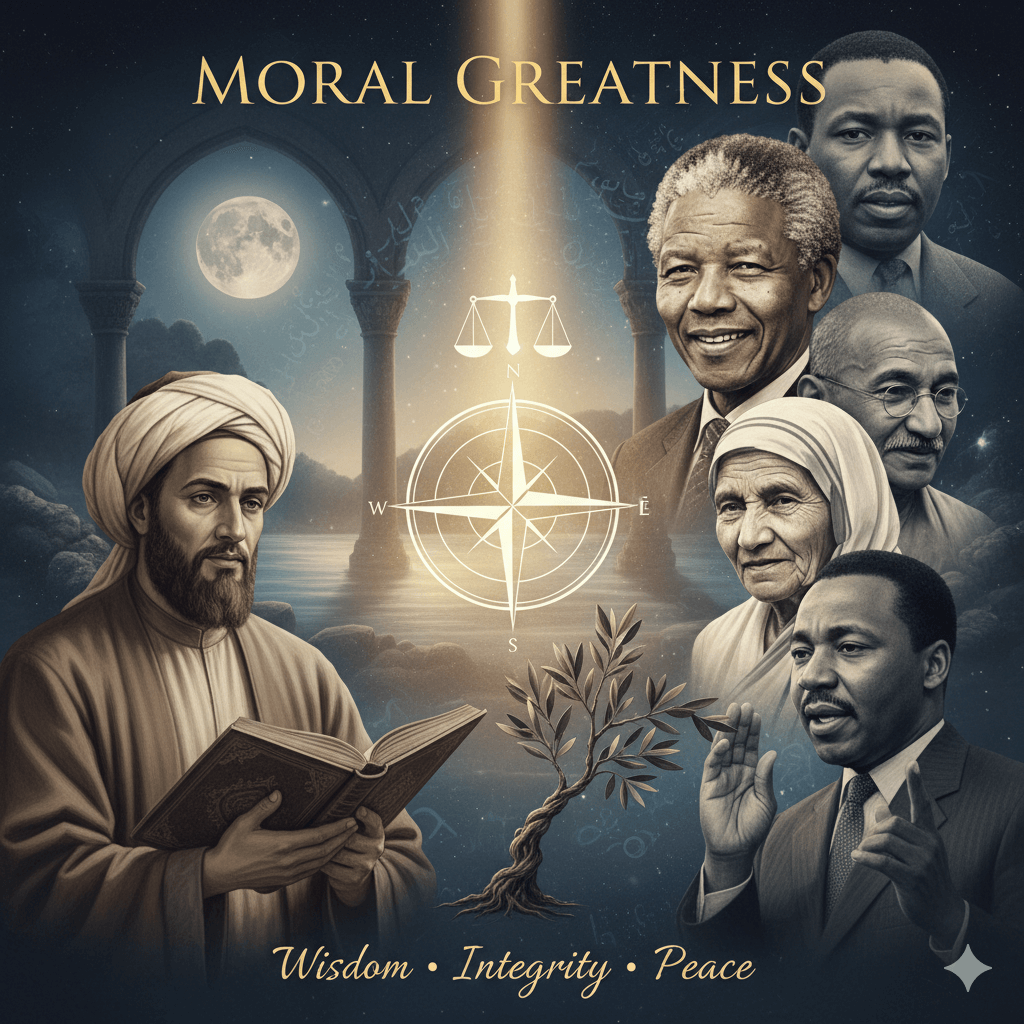
Moral Greatness – The Strength of Conscience
Moral greatness is the highest expression of human integrity — the courage to stand for what is right even when silence seems safer or conformity more convenient. It is not born from ambition or desire for recognition, but from an unwavering commitment to truth, justice, and human dignity. True moral strength arises when conscience outweighs fear and principle transcends personal interest. It is this inner moral compass that distinguishes greatness from mere success.
Throughout history, individuals of profound moral conviction have altered the moral landscape of humanity. Nelson Mandela embodied such greatness when, after twenty-seven years of imprisonment, he chose reconciliation over revenge. His forgiveness of those who oppressed him was not weakness but moral power — the triumph of conscience over bitterness. Mother Teresa, through her tireless service to the destitute and dying, demonstrated that moral action begins with compassion for the most vulnerable. Her life was a testament to the principle that dignity belongs to every human being, regardless of wealth or status.
In the Islamic intellectual and ethical tradition, similar examples abound. The Prophet Muhammad (peace be upon him) exemplified moral courage by standing against injustice, tribal prejudice, and oppression, emphasizing mercy and forgiveness even toward his enemies. His statement — “The strongest among you is the one who controls his anger” — captures the essence of moral greatness as strength guided by conscience. Likewise, Imam Ali ibn Abi Talib taught that true bravery lies not in battle but in resisting injustice with wisdom and patience. His letters, preserved in Nahj al-Balagha, remain timeless discourses on moral leadership and ethical governance. The philosopher Al-Farabi, known as the “Second Teacher” after Aristotle, also linked virtue and political ethics, asserting that a virtuous society depends upon leaders whose conscience governs their power.
Modern history offers further witnesses to moral greatness. Mahatma Gandhi’s philosophy of satyagraha — the force of truth — transformed political resistance into a spiritual and ethical movement. He proved that justice achieved through violence is hollow, but justice pursued through moral discipline ennobles both the victor and the cause. Martin Luther King Jr., inspired by the same principles, championed civil rights through non-violence and moral reasoning, declaring that “the time is always right to do what is right.” Both men remind us that conscience is the foundation of collective progress.

Moral greatness, however, does not depend solely on grand gestures or historical prominence. It manifests in the quiet choices of everyday life — in honesty when deceit is easier, in fairness when bias is tempting, and in courage when silence could protect us. It is the daily exercise of ethical consistency that sustains justice in societies and peace within individuals. As the Qur’an reminds us, “Stand out firmly for justice, even against yourselves or your kin” (4:135) — a timeless call to align conviction with conscience.
When morality governs our actions, greatness transcends personal ambition and becomes a force for social harmony and ethical progress. It is the strength of conscience that anchors humanity amidst uncertainty, ensuring that justice is not only pursued but lived. Yet, moral clarity must coexist with inner calm — for without balance, the mind grows weary and the spirit restless. Moral greatness, therefore, is not merely to act rightly, but to act with wisdom, serenity, and steadfast faith in the enduring power of truth.
Creative and Spiritual Greatness – The Light of Imagination and Inner Harmony
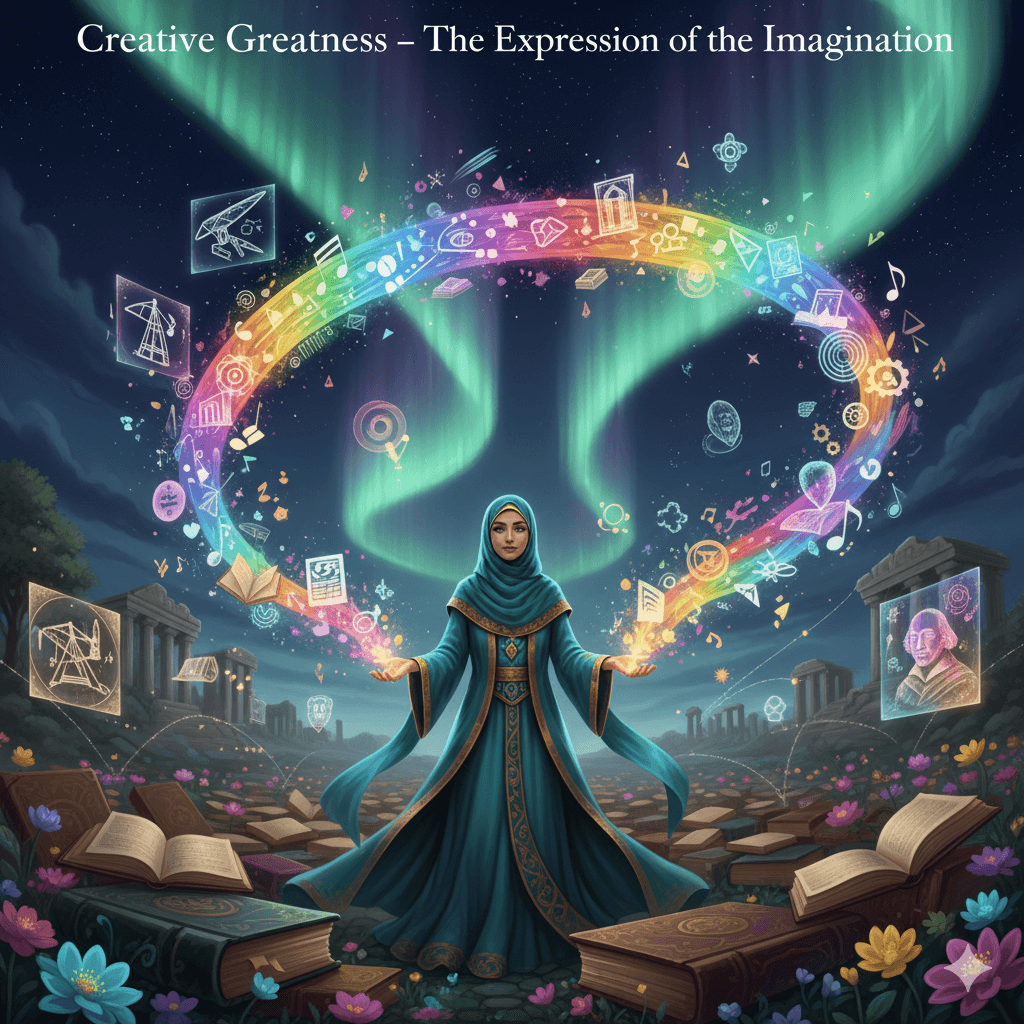
Human greatness is not limited to intellect or moral courage alone; it also blossoms through the imagination that envisions beauty and the spirit that seeks peace. Creative greatness and spiritual greatness are intertwined expressions of the human soul — one giving form to the unseen through art and innovation, the other finding meaning in silence and harmony. Together, they remind us that the highest purpose of creativity and spirituality is not self-glory but service to truth, beauty, and the common good.
Creative greatness is the power to turn thought into beauty and emotion into enduring form. It is the language through which humanity expresses its deepest longings and aspirations. Leonardo da Vinci embodied this ideal: painter, scientist, and engineer, he united observation with imagination, proving that creativity is boundless when nurtured by curiosity. His works — from The Last Supper to his visionary sketches of flying machines — revealed that invention begins in wonder. Likewise, William Shakespeare, through the mastery of language, illuminated the full spectrum of human emotion and moral struggle, capturing truths of the heart that transcend centuries and cultures.
Creative greatness, however, is not the preserve of the famous. It thrives in every individual who dares to see the world differently — in the architect who designs with compassion, in the teacher who inspires thought, in the scientist who dreams of better cures. Nikola Tesla’s electrical innovations, Rabindranath Tagore’s poetry, and Zaha Hadid’s revolutionary architecture all demonstrate that creativity, when guided by vision and purpose, advances civilization itself. Creativity is not simply the act of making, but the act of meaning — transforming imagination into progress and insight into beauty.
Yet even creativity finds its highest expression when directed by the spirit. Spiritual greatness is the quest for inner peace and harmony — the stillness that anchors the restless mind and connects the self to something greater. It transcends religious divisions, speaking instead to the universal longing for balance, gratitude, and transcendence. Siddhartha Gautama, the Buddha, attained enlightenment through mindfulness and compassion, teaching that peace arises from the mastery of desire and the awakening of awareness. Martin Luther King Jr., guided by spiritual conviction, faced hatred with love and injustice with serenity, proving that inner peace can be the most powerful instrument of social change.
In the Islamic tradition, Jalal al-Din Rumi taught that the soul’s journey toward God is one of purification and love — a dance between longing and surrender. His poetry continues to remind humanity that “the wound is the place where the light enters you.” Similarly, Rabia al-Adawiyya, one of the earliest Sufi mystics, embodied spiritual greatness through her devotion to divine love free from fear or reward, teaching that true peace lies in selfless connection with the Creator. In the modern age, Thích Nhất Hạnh carried the same message of mindful living and compassionate action, bridging spirituality and everyday life through presence and inner calm.
Spiritual greatness does not demand withdrawal from the world but deeper engagement with it — with patience, gratitude, and compassion as its foundation. In moments of stillness, we find clarity; in gratitude, we rediscover abundance. A calm spirit endures adversity without bitterness, transforming suffering into wisdom. As the Qur’an beautifully reminds us: “Verily, in the remembrance of God do hearts find rest” (13:28). Such remembrance — whether expressed through prayer, meditation, art, or service — restores balance to the mind and harmony to the soul.
Ultimately, creativity and spirituality illuminate the same path: the realization of human potential in service to beauty, truth, and peace. The imagination creates what the spirit seeks; the spirit sanctifies what the imagination conceives. When guided by compassion and purpose, they elevate humanity beyond survival toward meaning. In this union of creation and contemplation, we discover the essence of greatness — to dream boldly, to live peacefully, and to leave the world more harmonious than we found it.
Creative and Social Greatness – The Power of Imagination and Service
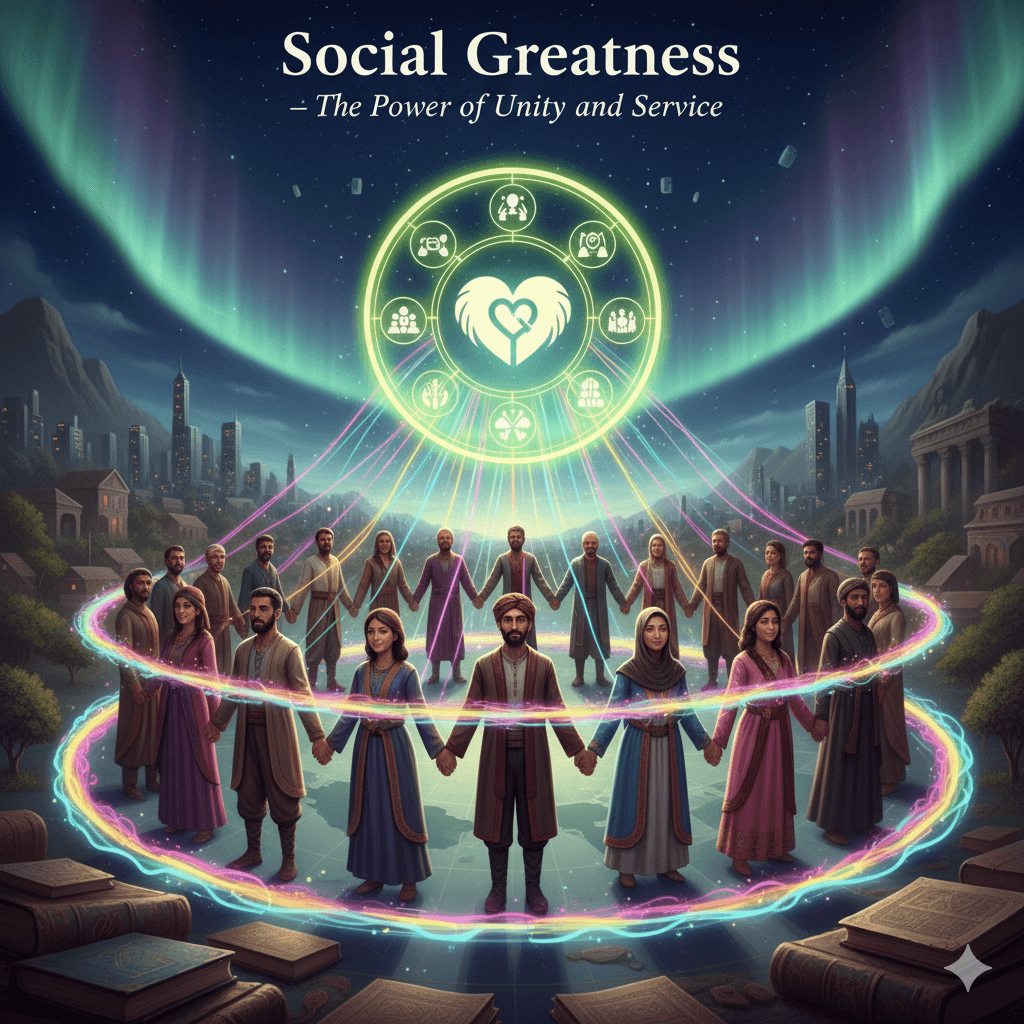
Human progress is born from two profound forces: imagination and compassion. Creative greatness gives shape to new possibilities, while social greatness transforms those possibilities into collective well-being. Together, they form the twin pillars of civilization — vision and service — reminding us that the highest expression of human potential lies in using creativity not merely for self-expression, but for the advancement of humanity.
Creative greatness is the vibrant expression of the human imagination — a force that transforms dreams into reality and inspires a brighter future. It is through creativity that we paint the canvas of tomorrow, crafting innovations that address the challenges of our time. Visionaries like Leonardo da Vinci embodied this union of art and intellect, blending science with imagination to revolutionize both fields. His designs and paintings, centuries ahead of his age, reflected the boundless capacity of the creative mind. Likewise, William Shakespeare, through his profound understanding of language and human emotion, gave voice to the universal human condition — love, ambition, tragedy, and hope — shaping literature for generations to come.
Creativity is not confined to art or literature; it thrives wherever the human spirit dares to imagine a better way. The scientific insights of Marie Curie, the architectural innovations of Zaha Hadid, and the technological vision of Steve Jobs each reveal that creativity is the heartbeat of progress. It invites us to see the world not as it is, but as it could be — to reimagine boundaries and cultivate solutions that uplift humanity. Every brushstroke, melody, and design becomes a testimony to the transformative power of human imagination.
At its highest level, creativity gains meaning when guided by purpose — when imagination serves humanity. This bridge between vision and service is the foundation of social greatness, the ability to unite people, uplift communities, and work for the common good. True social greatness transforms empathy into action and leadership into service. It is leadership rooted not in dominance, but in dignity.
At its highest level, creativity gains meaning when guided by purpose — when imagination serves humanity. This bridge between vision and service is the foundation of social greatness, the ability to unite people, uplift communities, and work for the common good. True social greatness transforms empathy into action and leadership into service. It is leadership rooted not in dominance, but in dignity

History offers powerful examples of such greatness. Winston Churchill, through his steadfast resolve during the Second World War, rallied nations around courage and unity at a time when despair threatened to prevail. His leadership was not simply political but profoundly social — built on the belief that collective strength can overcome even the darkest hours. Similarly, Abdul Sattar Edhi, through his humanitarian foundation, embodied social greatness by dedicating his life to serving the poor and marginalized, reminding the world that service is the highest form of leadership. His compassion crossed barriers of religion, race, and nationality, proving that the simplest acts of kindness can bind humanity together.
In more recent times, leaders such as Imran Khan have also sought to uplift societies through education, healthcare, and social reform, inspiring underprivileged communities across Asia to believe in their own potential. His advocacy for justice and equality reflects the enduring truth that social greatness begins with moral conviction and a sense of shared destiny.
When people unite around a common purpose, societies flourish. Service transforms personal success into collective progress, turning individual achievement into a source of communal empowerment. It reminds us that our greatest innovations and ideas reach their true potential only when they serve humanity’s broader good.
Through such service, we discover our greatest dimension — the courage to rise again.
Social and Resilient Greatness – The Strength to Serve and the Courage to Rise
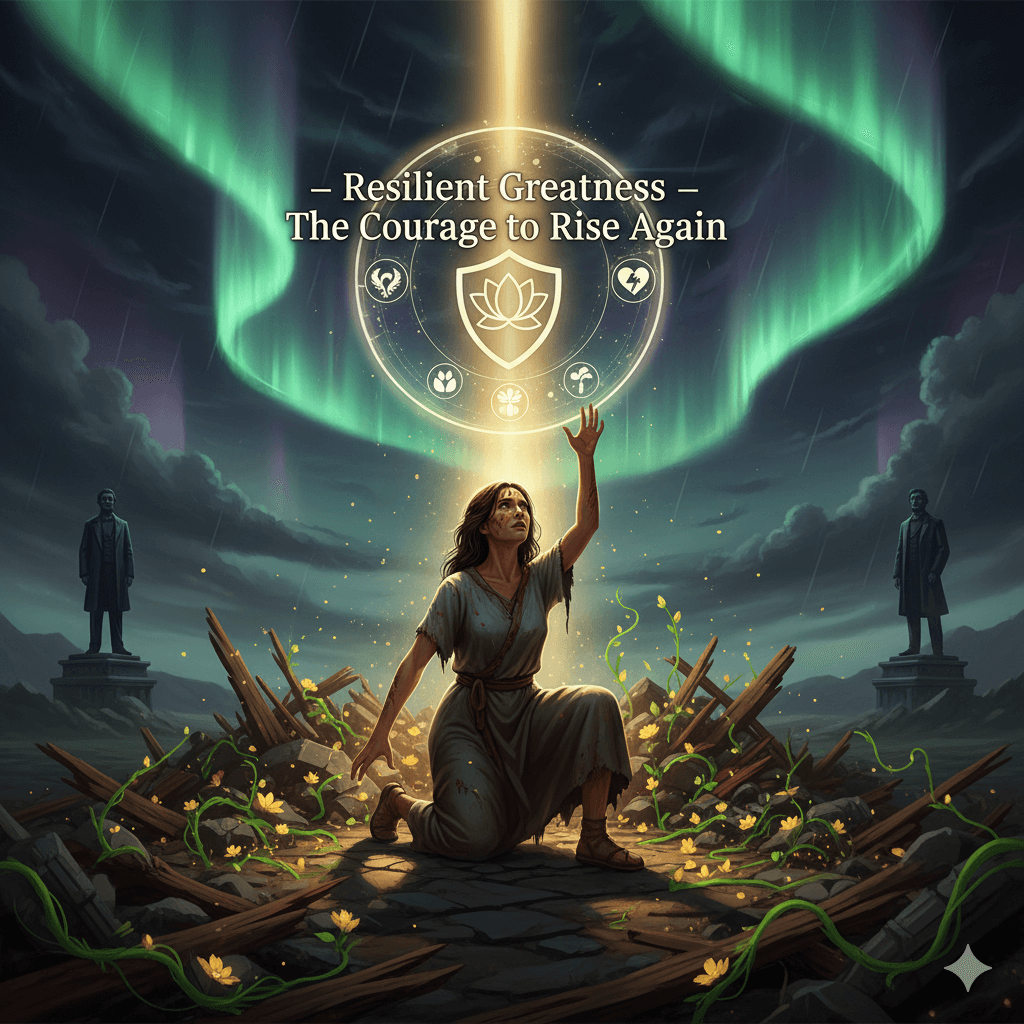
Human greatness finds its truest expression in the twin virtues of service and resilience — the strength to uplift others and the courage to rise after every fall. Social greatness is rooted in the power of community, the spirit of collaboration, and the will to serve beyond oneself. Resilient greatness is the quiet determination that transforms adversity into growth and suffering into strength. Together, they form the moral backbone of humanity: to care, to endure, and to rebuild.
Social greatness begins with the understanding that no individual flourishes alone. It is the ability to bring people together around shared values of justice, compassion, and collective purpose. True leaders do not seek power for its own sake; they use it to empower others. Winston Churchill, through his steadfast leadership during the Second World War, embodied this truth. In a time of despair, he united a fractured world through words of courage and vision, proving that unity can turn fear into fortitude. Likewise, Abdul Sattar Edhi, the founder of the Edhi Foundation, dedicated his life to serving the poor, the sick, and the forgotten, building one of the largest humanitarian networks in the world. His legacy endures as a reminder that social greatness is not measured by status but by service.
In the modern era, Imran Khan’s efforts to advance education and social welfare across South Asia reflect the same principle — that leadership grounded in empathy can awaken hope and transform societies. At Read & Riser, this vision finds a living spirit: by encouraging collaboration, empathy, and shared responsibility, we affirm that every person has the potential to contribute to a more inclusive and compassionate world.
Yet even the desire to serve requires an inner foundation — the strength to persevere when challenges arise. Here begins the domain of resilient greatness, the courage to rise again after defeat. Every human journey includes struggle, loss, and renewal. Greatness is not found in the absence of hardship but in the resolve to endure it with dignity and purpose.
Abraham Lincoln’s life stands as a testament to this truth. Repeatedly defeated in his early political career, he refused to yield to failure, ultimately guiding his nation through its darkest chapter — the Civil War — with unwavering resolve and moral clarity. His resilience reshaped history, transforming personal perseverance into national redemption. Similarly, Helen Keller, despite being born blind and deaf, transcended the limits of her condition through education and courage, becoming a global symbol of human strength and advocacy for the disabled. Her life teaches that true greatness is not defined by circumstance but by spirit.
Resilience refines the soul as fire refines steel. Adversity, when met with faith and patience, deepens understanding and compassion. The Qur’an reminds us, “Indeed, with hardship comes ease” (94:6), a timeless affirmation that every challenge carries the seed of renewal. Those who endure not only rise — they inspire others to rise with them.
In essence, social greatness builds communities, while resilient greatness sustains them. Service gives purpose to resilience, and resilience gives strength to service. Together, they shape the enduring legacy of humanity — the will to stand united, to persevere through trials, and to transform both suffering and success into compassion for all.
Through such service, we discover our greatest dimension — the courage to rise again.
Conclusion – The Dimensions of Human Greatness

The dimensions of human greatness remind us that excellence is not found in perfection but in balance — the integration of mind, heart, conscience, creativity, spirit, and resilience. Emotional, moral, creative, spiritual, social, and resilient greatness together form the full harmony of the human experience, revealing that strength without compassion is hollow, and intellect without wisdom is incomplete.
Greatness is not about standing above others, but about becoming more deeply and authentically human. It is the light that shines when knowledge serves wisdom, when power is tempered by conscience, when creativity uplifts society, and when courage is guided by peace.
In the end, to be great is not to conquer the world, but to illuminate it — to use one’s gifts in service of truth, beauty, and humanity itself.
Unleash Your Inner Greatness
Reflect on the unique dimensions of your own greatness and embark on a transformative journey towards personal growth. At Read & Riser, we believe in nurturing the mind, heart, and spirit to achieve true excellence. Take the first step today and discover how you can rise to your fullest potential.

